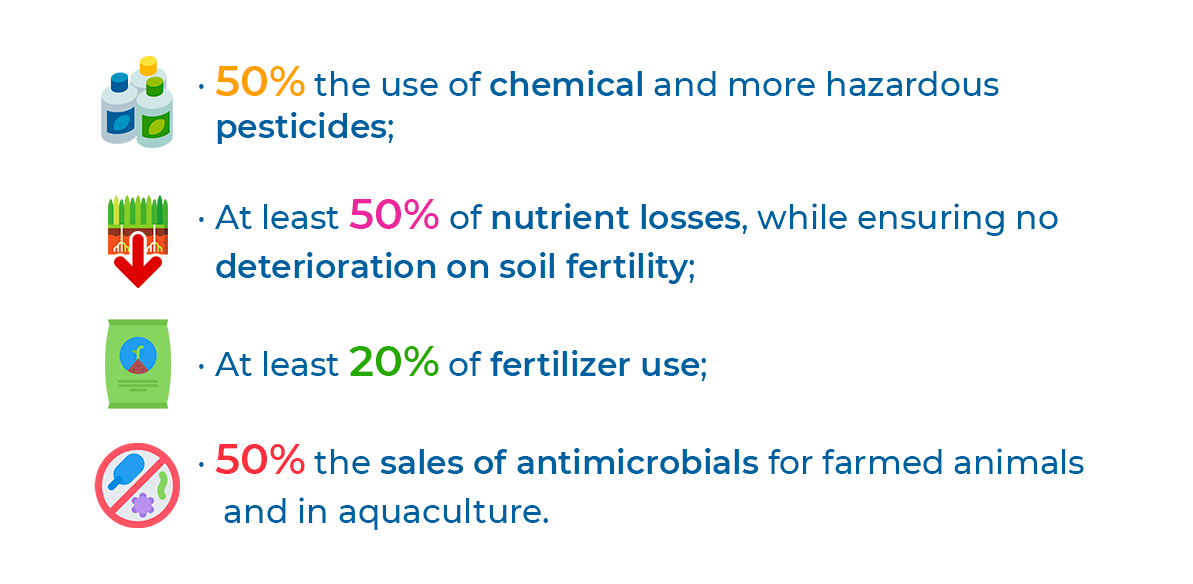European Green Deal: advancing on a healthier and more sustainable EU food system
The European Commission presented, in December 2019, an ambitious package of measures called the European Green Deal, aimed at overcoming climate change and environmental degradation threats and making the European Union´s economy sustainable: “This will happen by turning climate and environmental challenges into opportunities across all policy areas and making the transition just and inclusive for all”[1].
The European Green Deal overarching goals include becoming climate neutral in Europe by 2050 and decoupling economic growth from resource use, whereas not leaving any person or place behind. Its key components point to a new and better balance of nature, food systems and biodiversity, while protecting people’s health and well-being. [2]
As planned[3], the European Commission presented on May 20th, 2020, the “Farm to Fork Strategy”, in which the main actions focus on reducing, by 2030:[4]

According to the Farm to Fork Strategy, organic farming is an environmentally friendly practice that needs to be developed further. Therefore, one of the defined actions also addresses boosting the development of EU organic farming area with the aim to achieve 25% of total farmland under organic farming by 2030.
To make this green transition happen, €10 billion under Horizon Europe is to be invested in research and innovation related to food, bioeconomy, natural resources, agriculture, fisheries, aquaculture and environment. Other strategies also include food labelling to empower consumers to choose healthy and sustainable diets and fight against food waste.
The ProTerra Foundation’s key components centre around the protection of high-conservation-value areas; good labour and agricultural practices, such as sustaining soil fertility and water resources; lowering the use of fertilizers and pesticides and rigorous non-genetically-modified-organism (GMO) requirements.
Visit our website to learn more: https://www.proterrafoundation.org/